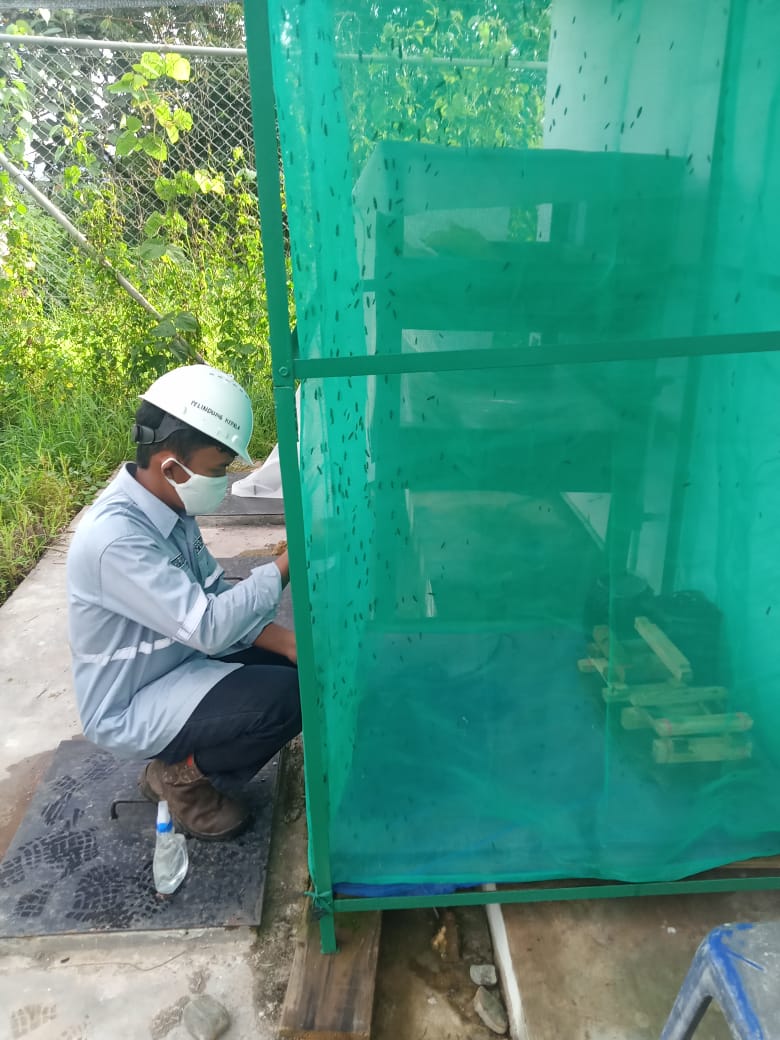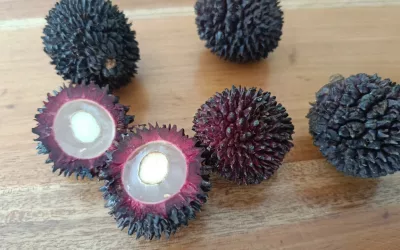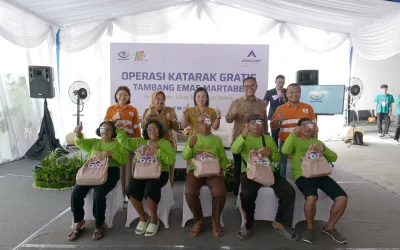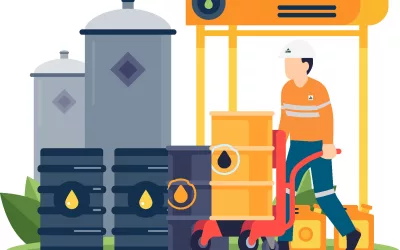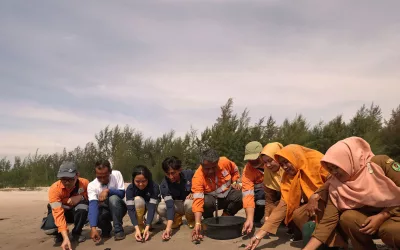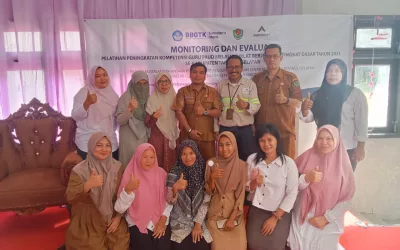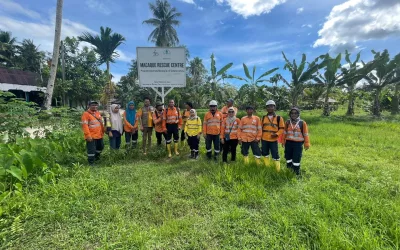As the operator of the Waste Sortation Facility (WSF) at the Martabe Gold Mine, the Imajinasi Cerdas Berkarya (ICB) Cooperative is driven to continuously strive for new breakthroughs in reducing the volume of waste. Their latest experiment is maggot cultivation.
Maggot is the term used for the larvae of the Black Soldier Fly (BSF). This fly, with the scientific name Hermetia illucens, has a life cycle that begins with eggs, maggots (larvae), prepupae, pupae, and adult insects. Maggots require organic waste to grow for 25 days until they are ready to be harvested. One kilogram of maggots can consume two to five kilograms of organic waste per day. This means that maggots can decompose organic waste 24 hours a day at two to five times their body weight. At the Martabe Gold Mine site, maggots are used to decompose organic compost waste that generally comes from camp activities.
Maggots, which are soft, white or yellowish in color and reach a length of 30 mm when mature, can also be an alternative high-nutrient livestock feed, as they contain substances needed for the growth and development of livestock, especially poultry. Previously, ICB gave the harvested maggots free of charge to the surrounding community who raised chickens, fish, or bird lovers. Currently, with the spirit of 3R (reduce, reuse, recycle), ICB Cooperative is starting to think about making dried maggots in packaging, which is expected to be marketable. This idea can certainly add economic value or income to the ICB Cooperative.

